[Article + video originally published on Alex Krainer's Substack]
On Sunday morning we woke up to the most surreal news: the regime of Bashar al-Assad in Syria is no more. From the day the new-and-improved Jabhat al-Nusra, now renamed Hayat Tahrir al-Sham (HTS), launched their attack on Syria (Wednesday, 27 November at 7:50 AM) to Sunday, 8 December 2024, only 11 days' time. In those 11 days, Damascus fell and president Assad fled to Russia. The Syrian Arab Army (SAA) offered next to no resistance and HTS drove straight through Syria almost unopposed.
West’s moderate head choppers in action
All of a sudden and seemingly out of nowhere, the already strategically defeated Western empire suddenly scored a brilliant victory and everything changed. The media and social networks are chock-full of stories about how this happened and explanations of why it happened this way. Supposedly Syria was too week, its troops too poorly paid, its leadership too corrupt to withstand the onslaught from Idlib.
The same Syria and its army under the same Bashar Al-Assad fought a concerted attack by Al Qaeda, ISIS, al-Nusra, Khorasan and other moderate head choppers supported by Turkey, US, UK and the whole Arab league. They resisted for four long years, from 2011 until 2015, when Russia finally came to their rescue. The same Bashar al-Assad refused to flee Damascus back then. Since 2016, Syria had 8 full years to regroup, rearm and reinforce their defenses against the incursion which was fully expected.
Syria folded with a stronger hand
Not only that, in those past 8 years the circumstances changed quite substantially: until last Sunday, Syria was facing a much weaker West, a fractured Arab street (the Arab League, with the exception of Qatar was at least overtly supportive of the Assad regime). In 2011, Russia and Iran had a cold-to-hostile relationship but today they are in a close alliance and both were fully supportive of Syria. Furthermore, Iran and Saudi Arabia are no longer enemies and Iran has largely consolidated its dominance in the region.
The insurgency brewing under Turkish protection in Idlib wasn't a secret either. Iranian intelligence warned Assad and Syrian leadership months in advance that an attack was being prepared. HTS's leader Mohammad al-Golani made no secret that HTS's objective was not only Aleppo but Damascus itself. According to US reports, HTS & friends have been attacking Syrian positions almost constantly since 2022 and SAA had heavily fortified positions capable of containing attacks from Idlib towards Aleppo. But when the attack came, they offered almost no resistance.
Keep in mind, the jihadi forces from Idlib counted between 20,000 and 30,000 troops. Syrian army counted nearly 270,000 troops. An invading force would have to outnumber the defending forces by a factor of 3:1 to overcome their resistance. As it was, the defenders outnumbered the attackers almost 10:1, were well equipped and well armed in fortified positions. This is the reason why the Israeli intelligence thought that Idlib incursion was a suicide mission. SAA's best forces were concentrated in Hama, but when HTS attacked, Hama fell without a fight.
Four beers to die defending your country
Why did all of Syria fall without a fight? I suspect that many of the knee-jerk explanations circulating at present will prove wrong. The stories about poorly paid soldiers and corrupt commanders make as much sense as office fires bringing down steel frame towers. This simply can’t happen that way.
I served in the army during war and I remember that my salary was good to pay four beers out in the city. Regardless, I don’t recall a single conversation about whether our pay was enough for us to obey our orders. If bad pay and corruption played any role, Ukraine wouldn't have an army at all. But it does, and they're still fighting. How and why the Syrian army vanished in 11 days’ time requires a better explanation. Either way, if I were sitting on the (currently) winning side, I'd be very worried by now: the only place you walk into this easily is a trap.
The big picture: Syria and Ukraine are two parts of the same war
Time will tell, but here are a few dots that might make coherent sense if connected. First off, the conflict in Syria is part of the same conflict that's also being fought in Ukraine. On 29 November in Astana (two days after HTS launched their incursion into Syria), Vladimir Putin said the following with regards to war/peace in Ukraine:
"Let me underscore the key point - the essence of our proposal is not a temporary truce or ceasefire, as the West might prefer, to allow the Kiev regime to recover, rearm, and prepare for a new offensive. I repeat: we are not discussing freezing the conflict, but its definitive resolution."
And what is Putin's definitive resolution? It's nothing less than the creation of a new security architecture between the "heartland and the rimland" to use Halford Mackinder's terminology. In other words, Putin is determined to end British geopolitics once and for all. The following section is an excerpt from my upcoming book about the conflict in Ukraine and I believe it is fully relevant to the recent events in Syria.
Squashing British geopolitics
Today’s wars are driven by the Western imperial oligarchy as they struggle to maintain their dominance and to impose their “rules-based” global order. The central element of their agenda is an overarching imperative to preserve their hegemony over the Eurasian landmass. This long-held obsession draws roots from the British Empire. It was explicitly articulated at the turn of the last century by the British scholar and statesman Sir Halford Mackinder.
Following an extensive study of world history and geography, in 1904 Mackinder published a seminal paper titled, “The Geographical Pivot of History” in which he argued that the Empire’s exclusive focus on sea power was misguided and that the destiny of the world would be shaped by land powers. Mackinder hypothesized that the long-term viability of states therefore critically depended on their space and location and concluded that optimum conditions of space and location were only to be found in the inner regions of Eurasia which he named the Pivot Area: a large expanse roughly encompassing Russia, the Caucasus region, Kazakhstan, Iran, and Afghanistan.
In Mackinder’s framework, the Pivot Area is surrounded by the Inner or Marginal Crescent which includes Europe, Northern Africa, Asia Minor, the Arabian Peninsula, India, China and Japan, while the lands of the Outer, or Insular Crescent included the rest of the world. For Mackinder and the British imperial cabal, the Pivot Area was strategic because it was capable of emerging as an independently viable economic power that could spawn a powerful rival empire.
The introduction of Trans-Siberian railway in 1904, facilitating improvements in the region’s internal communications and transport which the railway made possible, was seen as a major catalyst of this development, as well as a cause of alarm for the imperial cabal in London.
Russia was seen as the most likely nation to emerge as the pivot land power. Mackinder wrote as follows:
“The spaces within the Russian empire and Mongolia are so vast, and their potentialities in population, wheat, cotton, fuel, and metals so incalculably great, that it is inevitable that a vast economic world, more or less apart, will develop inaccessible to oceanic commerce … In the world at large, [Russia] occupies the central strategical position held by Germany in Europe. She can strike on all sides, save the north. The full development of her modern railway mobility is merely a matter of time… The oversetting of the balance of power in favor of the pivot state, resulting in its expansion over the marginal lands of Euro-Asia, would permit of the use of vast continental resources for fleet-building, and the empire of the world would then be in sight. This might happen if Germany were to ally herself with Russia.”
British Empire considered this to be an existential threat which had to be neutralized and destroyed. Mackinder proposed a solution to this challenge, which foreshadowed the century of British geopolitics:
“The threat of such an event should, therefore, throw France into alliance with the over-sea powers, and France, Italy, Egypt, India and Korea would become so many bridgeheads where the outside navies would support armies to compel the pivot allies to deploy land forces and prevent them from concentrating their whole strength on fleets.”
Surrounding Russia with an arch of crises
The empire’s arch of crises, supply lines for proxy armiers.
In plain English, Mackinder suggested surrounding the Pivot Area with a crescent of crisis flashpoints and inducing nations like France, Italy, Egypt, India and Korea to bait the pivot power (Russia) into an unending series of exhausting, crippling quagmires. His suggestions were taken entirely seriously and have defined the foreign policy of the Western empire ever since.
Over the ensuing decades, the exact geography of the designated flashpoints shifted somewhat with the changing geopolitical opportunities and Mackinder’s language and ideas evolved. For example, in 1919 he published the paper, “Democratic Ideals and Reality,” in which he renamed the Pivot Area as “the Heartland,” and spelled out its significance: “Who rules East Europe commands the Heartland; who rules the Heartland commands the World-island; who rules the World-island controls the world."
Today, Ukraine and Syria (and Israel) make part of the rimland, or the "arch of crises" which the empire arranged from the Mediterranean to the Koreas in order to keep Russia and its allied powers constantly at war. Weakening these pivot power and preventing the emergence of a rival empire on Eurasian continent is an absolute imperative for the Western oligarchy. They will pursue it even at the cost of nuclear war against Russia.
Taking this “big picture” context into account, from Russia’s point of view, it could make sense to draw the empire into its final quagmire in Syria. After all, this is how the West destroyed the Soviet Union in the 1980s: not through a frontal war, but by drawing the USSR into a quagmire in Afghanistan. It was a clever gambit, but not really rocket science. And it worked.
The brilliant victory the west is now busy celebrating might even sedate the panic in the ruling establishment, enough for them to draw their fingers away from nuclear triggers and to pile assets into Syria to secure and defend the unexpected prize. But if the past is prologue, they’ve only won a Pyrrhic victory and already lost the war. The track record of the West’s cunning plans and dirty tricks is very consistent and predictive.
Of cunning plans and dirty tricks
Western powers seem to revel in their duplicity and treachery. They long lost their moral compass if they ever had one. Supposedly they once did, in the good old days, but the more you know about events behind the headlines, they more you realize that the only thing that's changed since those good old days is that today we have a far more granular picture of events. Sanitized news and sanctimonious proclamations are no longer taken at face value quite as readily as they once were.
Many are now openly celebrating evil - because Putin bad, Iranians bad, Assad bad, etc. Syria fell, not to the forces of democracy and freedom, but to hastily scotched-up brigades of certified head-chopping jihadi terrorists - the same ones that have slaughtered Syria's Christians by their thousands between 2011 and 2015.
Before 2011, Syria was home to about 2 million Christians who lived there in peace; today there are only abpit 300,000 and most likely there will be none left before this year is out. And the jihadis are equal opportunity, inclusive head choppers: they harbor the same warm regards toward Shia Muslims, Alawites and the Jews. But hey, Assad fell so hooray, what a brilliant victory for our side!! So clever, so cunning, so triumphant!
Freedom and democracy under moderate head-choppers: so much to celebrate!
Incidentally, HTS - the new & improved Al Nusra front - has been on the U.S. State Department's list of terrorist organizations since 2018. The organization's leader al-Jolani has been on the list of wanted terrorists since 2013 and still to this day has a $10 million bounty on his head. Now all of a sudden they're all jolly good fellows, and so say all of us!
Mind the long-term trends!
But even if our moral compass is irreparably broken, at least some vestige of practical common sense and a sensitivity to historical patterns should survive in sober minds. The U.S. once triumphantly entered Kabul, deposed the terrible, horrible, no good Taliban regime and took Afghanistan from them. Twenty years and $4 trillion later the invincible hegemon had to withdraw from there and surrender Afghanistan to the same terrible Taliban again.
In 2003 the U.S. triumphantly walked into Baghdad. Two decades later, U.S. troops are holed up in their bases like sitting ducks at the mercy of Iran and its proxies. Capturing and executing Saddam Hussein was also celebrated as some great milestone in the democratic transformation of the Middle East. In effect, the great hegemon handed Iraq over to the Iranians. Then in 2013 we celebrated the fall of the terrible, horrible, no good madman Ghaddafi in Libya. Yet another brilliant triumph of Western forces of democracy and freedom. Only, it blew back spectacularly.
Recall, one of the main sponsors of that project in addition to Lord David Cameron was French president Nicolas Sarkozy. Decapitating Libya was supposed to help secure French hegemony over her dependencies in north and west Africa. Today France barely has any dependencies there and now even Chad and Senegal are kicking them out.
And let’s not forget Ukraine! In February 2014 we overthrew Ukraine’s president Yanukovich, installed a proto-fascist junta, coerced them to launch the brutal Anti-Terror Operation against the Eastern oblasts and strung the Russians along with Minsk Agreements to gain time to weaponize the whole country for the coming war against Russia. So, so clever. So brilliantly cunning!
Sadly, a good chunk of the western audiences have come to regard bad faith craftiness, double-dealing and dirty tricks that score these short-term Pyrrhic victories as evidence of great strategic sophistication among the Western foreign policy establishments' ruling circles. Every uptick in geopolitics triggers loud cheering, trash talking and chest thumping while the long-term trendline is being conveniently ignored.
The long descent from our unipolar moment
So, what does that long-term trendline look like? Let's remember that in 1993 - more than 30 years ago - the U.S. adopted the Wolfowitz Doctrine named after its brilliant author, Paul Wolfowitz. The Doctrine was meant to enshrine and cement Western empire's unipolar moment, secure its "full spectrum dominance" and prevent any rival from emerging. It also inspired the "Project For the New American Century," (PNAC) which put forth essentially the same geopolitical objective: total dominance.
In 2004, one of PNAC's brilliant alumni, Michael Ledeen suggested that,
"every now and again the United States has to pick up a crappy little country and throw it against the wall just to prove we are serious."
That's lovely, but how'd that unipolar moment work out over the last 30 years? For all the crafty cunning, double dealing and dirty tricks, for all the cheating on NATO expansion, regime changes, Minsk Agreement deception, for all the invincibility of the finest fighting force in the history of the universe, and all the blinding brilliance of the West's strategic leadership, things didn't seem to work out all that good.
The unipolar moment is no more and Western powers have devolved to relying on certified terrorists to help them achieve their short-term Pyrrhic victories. Even while the loud cheering is still echoing, there is no reason to believe that the misadventure in Syria will be worth celebrating any more than Afghanistan, Iraq, Libya or Ukraine are. Sadly, rivers of blood will be spilled, all for opposite outcomes and unintended consequences.
https://www.zerohedge.com/news/2024-12-15/syria-will-it-prove-be-empires-final-guagimre
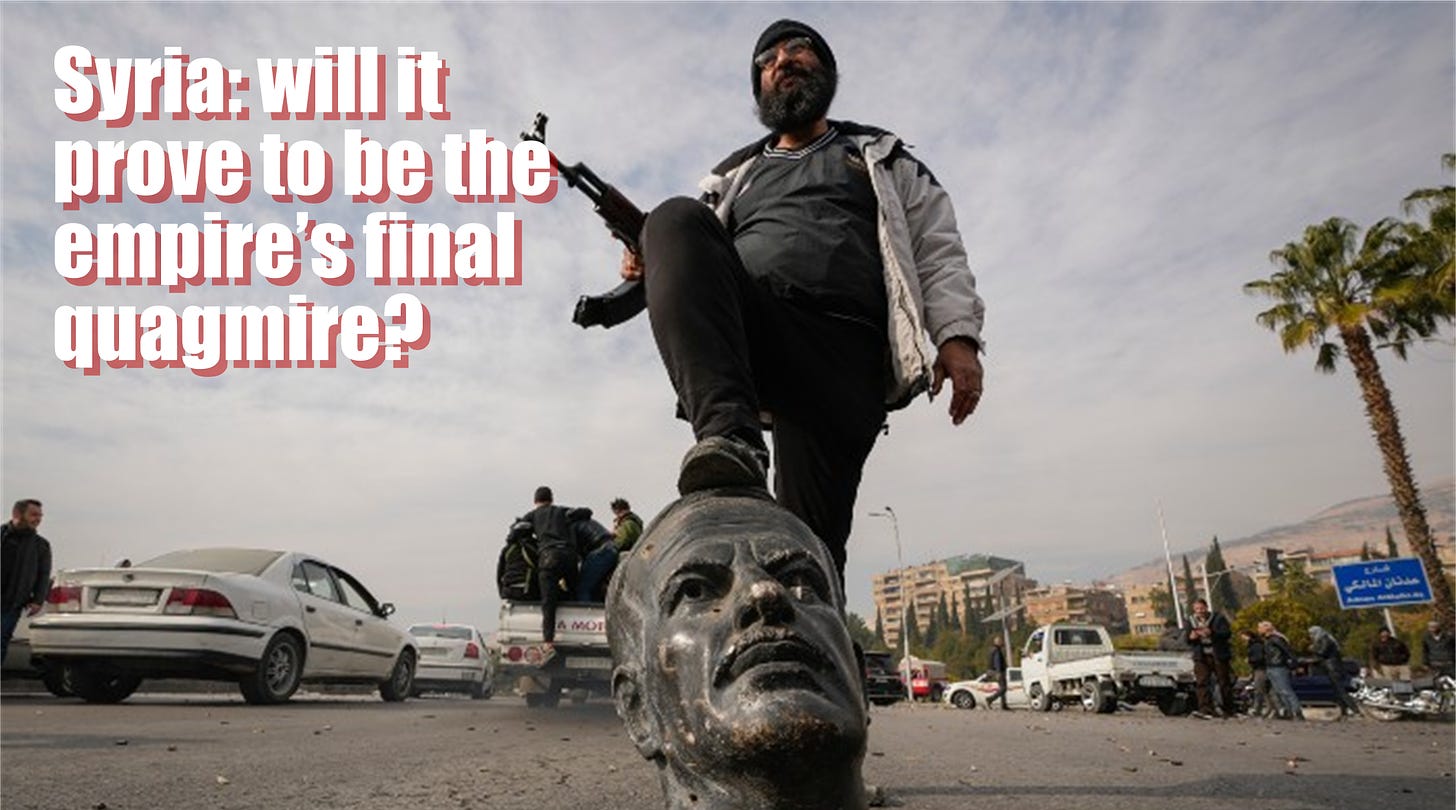
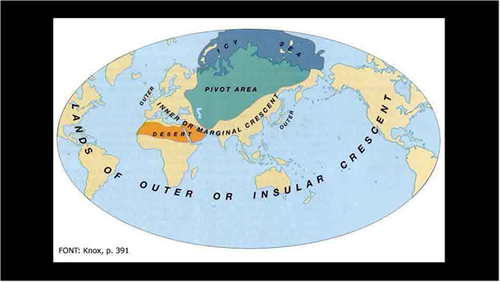
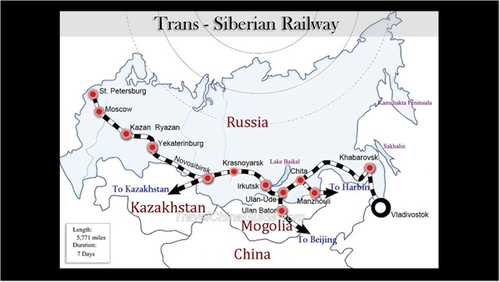
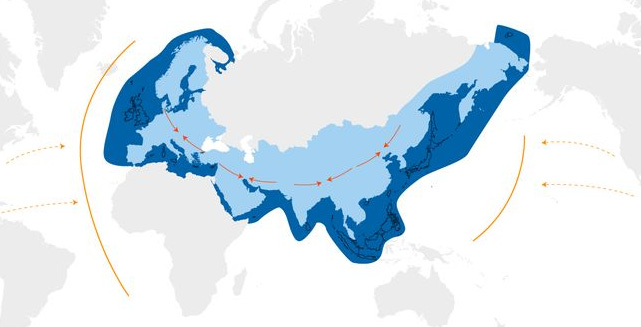
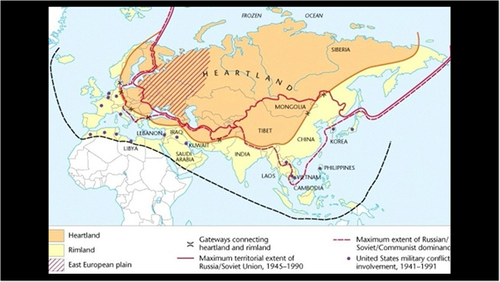

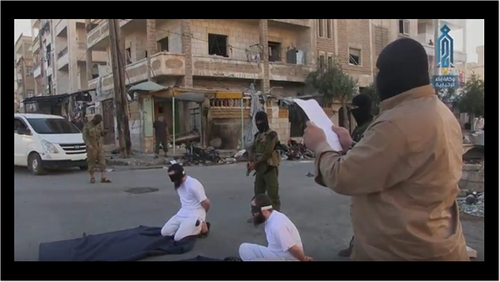



No comments:
Post a Comment